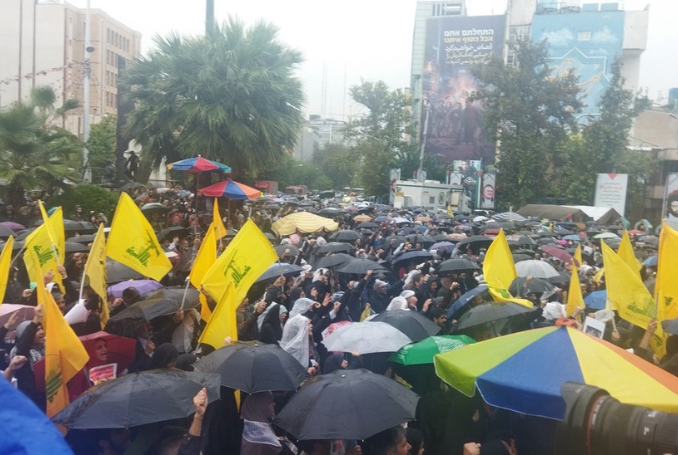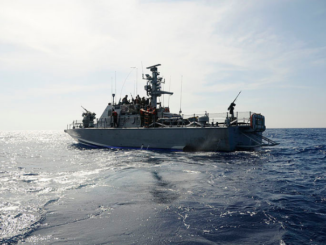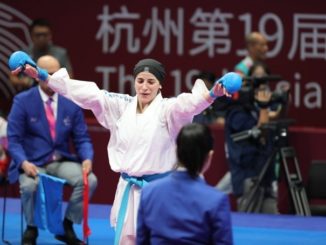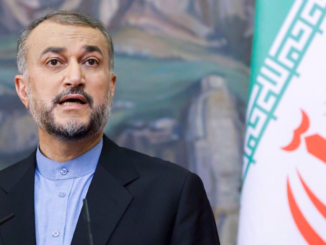
Thousands of Iranians gathered on Monday in Palestine Square in Tehran in protest of the Israeli aggression on Lebanon and in honor of Hezbollah leader Hassan Nasrallah.
The protesters who carried the Iranian, Lebanese and Palestinian flags along with Hezbollah banners and photos of Nasrallah, chanted anti-Israeli and anti-American slogans and denounced the Israeli attacks that claimed the life of Nasrallah and the senior commander of Iran’s Revolutionary Guards, Brigadier General Abbas Nilforoushan.
“Our only word is revenge,” protesters of all ages chanted while reciting elegies.
Iran vowed retaliation on Sunday following Israel’s killing of Nasrallah and Nilforoushan
Iranian Foreign Minister Abbas Araghchi, in a statement, condemned the assassinations and announced that this act “will not go unanswered.”
“This heinous crime by the Zionist regime will not go unanswered,” Araghchi emphasized in his statement.
‘Master of Resistance’
On September 27, 2024, the Israeli army announced it had bombed Hezbollah’s central headquarters in Beirut, targeting the group’s leader, Hassan Nasrallah.
The next day, Hezbollah confirmed in a statement Nasrallah’s death, vowing to continue its resistance against Israel and to support Gaza and Palestine.
Hassan Nasrallah, the third Secretary-General of Lebanon’s Hezbollah, was born in 1960 and assumed leadership of the group on February 16, 1992, following the assassination of his predecessor, Abbas Musawi, by an Israeli missile strike.
The gathering of Iranians in Palestine Square in Tehran, the capital of Iran, to mourn the martyrdom of Sayyid Hassan Nasrallah and support Hezbollah.
Various gatherings are being held throughout the provinces and cities of Iran. 🇮🇷 💔 pic.twitter.com/xnv1sDfkA0
— Abshar Tasnim (@Abshar_Tasnim2) September 28, 2024
Known as the “Master of Resistance,” Nasrallah pursued religious education in Shiite seminaries in Lebanon, Iraq, and Iran.
Under Nasrallah’s leadership, Hezbollah carried out significant military operations against Israel, culminating in Israel’s withdrawal from southern Lebanon in 2000 after a 22-year occupation.
He played a key role in the 2004 prisoner exchange with Israel, described as one of the largest swaps of prisoners and bodies, including prisoners from other Arab nations.
Border War
Since the start of the Israeli war on Gaza, on October 7, the Lebanese movement Hezbollah has engaged directly, but relatively in a limited way in the war against the Israeli occupation.
People in Iran's capital, Tehran, gathered to protest against Israel's assassination of Hezbollah leader Hassan Nasrallah pic.twitter.com/NGz2BnBrUN
— Palestine Highlights (@PalHighlight) September 28, 2024
In recent weeks, however, the intensity of the fighting has increased, leading to concerns that an all-out war is imminent.
Israel has occupied parts of Lebanon for decades and has only left the country in 2000, following stiff Lebanese resistance under Hezbollah’s leadership.
Israel attempted to re-occupy Lebanon in 2006 but failed in what Lebanon considers a major victory against Israel.
Israel, however, continues to occupy parts of Lebanon, namely the Sheeba Farms region.
Hezbollah has vowed to recover every inch of Lebanon that has been occupied by Israel contrary to international law.
(PC, Anadolu)










Be the first to comment